Asking the Right Question
When I came to Boston University in the mid 70’s, I enrolled simultaneously at the School of Public Communications and the School of Education. I wanted to learn how to produce videos that would illustrate good teaching. I thought the doctoral studies and the excellent B.U. library would enable me to figure out what good teaching was, and the courses at the School of Public Communication would give me the video skills to create useful images of it in action. What I discovered early on, along with my immersion as an instructional coach in the Cambridge Public Schools, was that I was asking the wrong question in my studies.
The question wasn’t “what is good teaching?”. The answer to that question turned out to be a resounding “it depends.” The real question was, “What are the things teachers do that are important?” They build relationships, they make ideas clear and accessible, they give students tools to be effective learners…..and on and on and on. There are key tasks successful teachers accomplish, quite a few of them. Each is a variable that contributes to student learning, and they all operate simultaneously, some in the foreground and some in the background. In addition, there is no one right or best way to accomplish any of them. There exists a repertoire of ways. Good teaching (Skillful Teaching) is actually one’s ability to match a response from one’s repertoire to the student, the situation, or the curriculum. The bigger one’s repertoire, the better chance of making a good “match”. And as a school, the more the faculty could collectively learn together, the better the odds we could all increase our repertoires and serve more children.
The question wasn’t “what is good teaching?” The answer to that question turned out to be a resounding “it depends.” The real question was, “What are the things teachers do that are important?” |
Founding an Organization
I didn’t set out to create a consultancy organization or even become an independent professional development provider for school districts. In the mid 1970’s I did frequent workshops on site for my student teachers while I was a doctoral student at Boston University. These workshops began to be attended by my students’ mentor teachers in Boston, Newton, and Concord MA, and more and more of the teachers at these schools dropped in on the workshops as the years rolled by. I think the appeal to them was the climate of mutual learning from one another and the notions of repertoire and common tasks in teaching I described above. Anyway, by the time I graduated in 1980 I had numerous requests to provide workshops, first on classroom management and clarity and then on other aspects of the framework in my dissertation like planning and high expectations teaching. The requests snowballed and RBT started to grow, one person at a time.
I published the dissertation as the first edition of The Skillful Teacher in 1979.
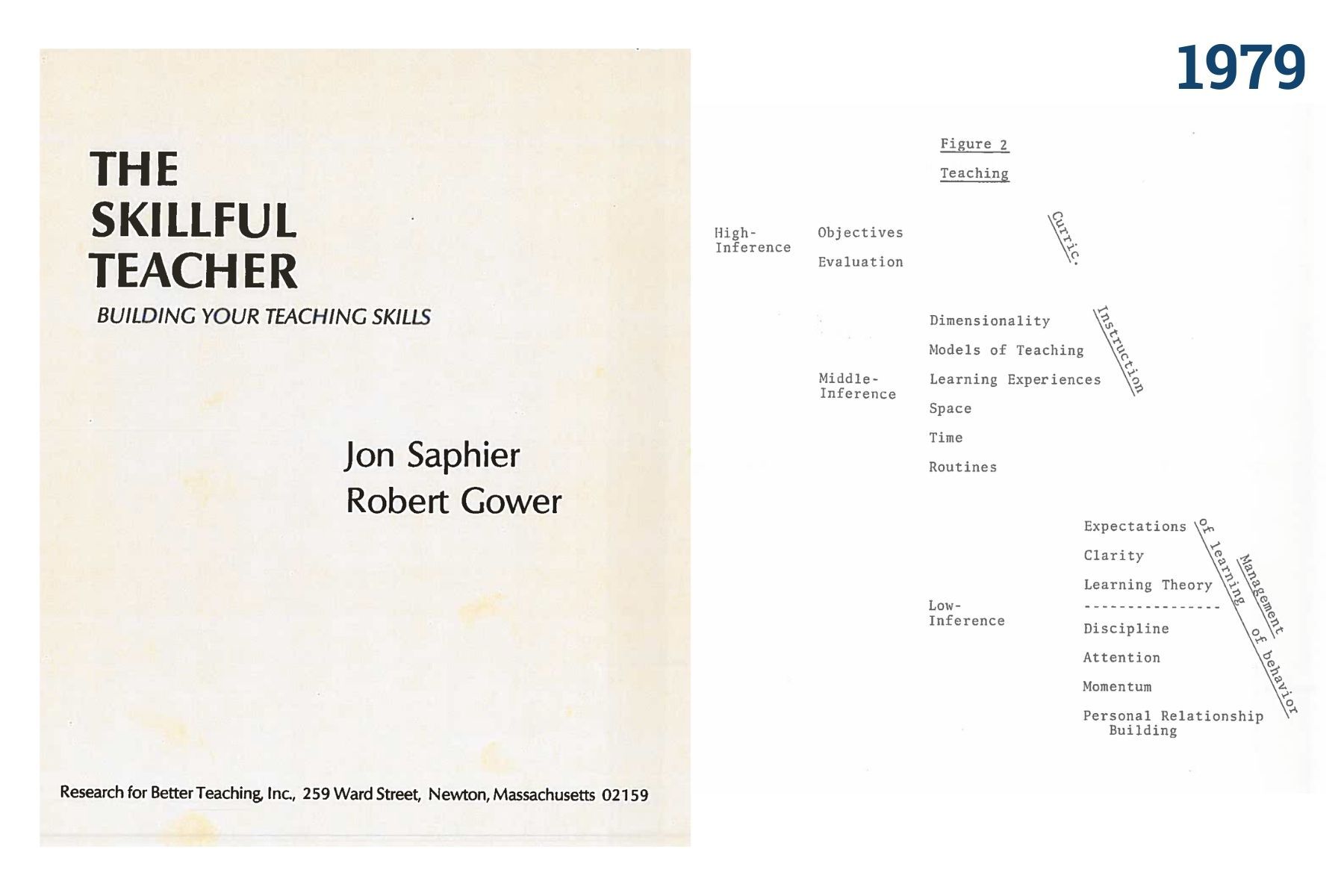
The Skillful Teacher 1979
Administrators saw the framework of The Skillful Teacher at regional conferences where I was occasionally asked to present. They made connections between the framework and the possibility of making their teacher evaluation systems more research-based and more conducive to productive feedback conversations with teachers. That led to a request in the early 80s by four local MA districts to train their administrators on observation and analysis skills, and in one case, to lead a process to develop a totally new teacher evaluation system. In Duxbury, MA the assistant superintendent, Peggy McNeil, became intrigued with the framework and started giving me excellent feedback on the training sessions. I requested that Peggy observe me in other districts and help improve the sessions, which she did. Eventually she joined me as the first full time RBTer and played a key role in training others who joined us over the rest of the decade. We eventually grew to an organization of 30 full time people.
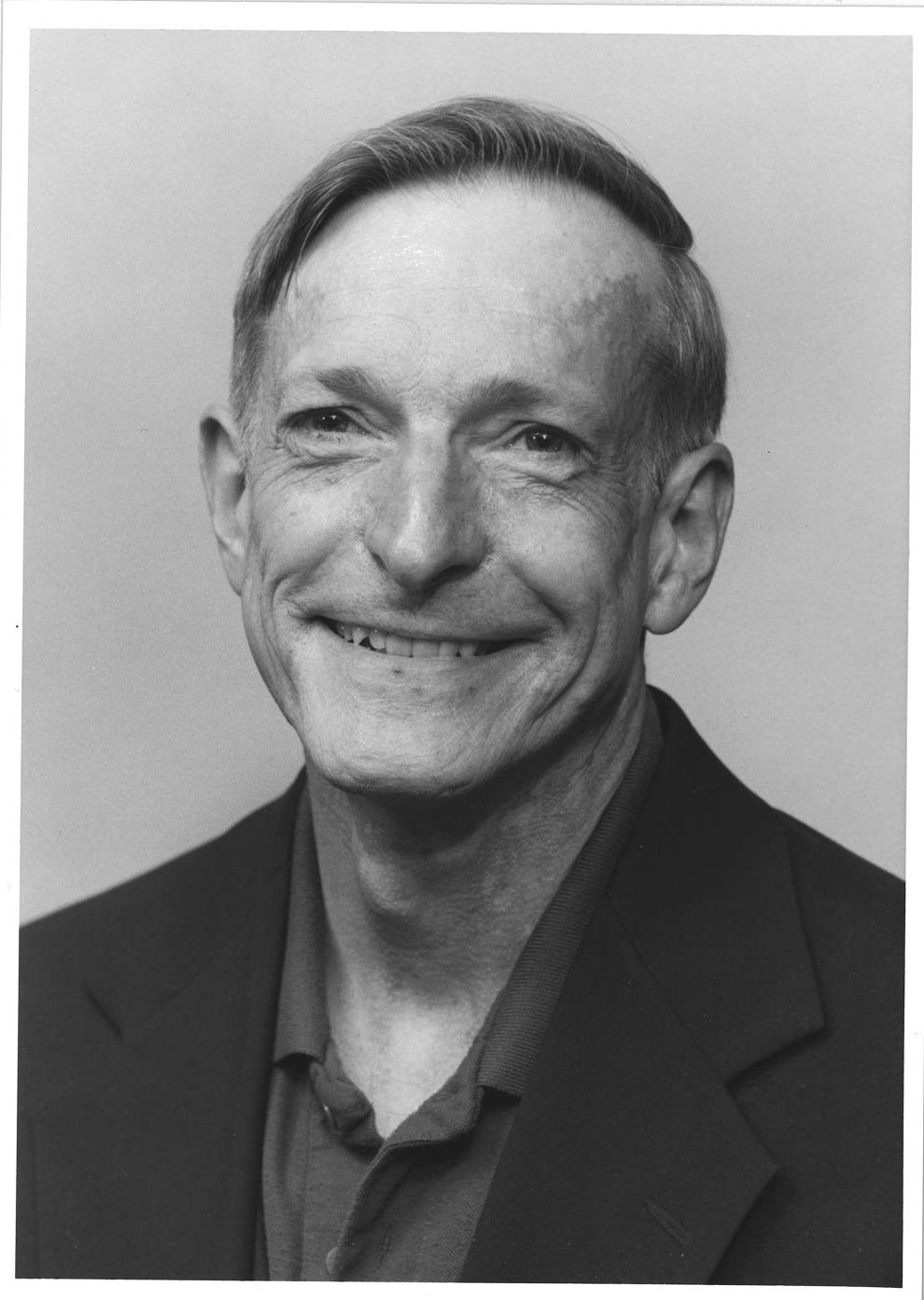
Jon Saphier circa 1990
Throughout the 80s and 90s we had informal breakfasts on Saturday mornings in the barn, a real red barn across the driveway from my house. We finished off one room at a time in that barn over the years and eventually it turned into our company office. These breakfasts were warm incubators of ideas for improving schools and for improving our own offerings and training skills. RBTers from those days remember them fondly for their real collegiality, liveliness, and constant learning.
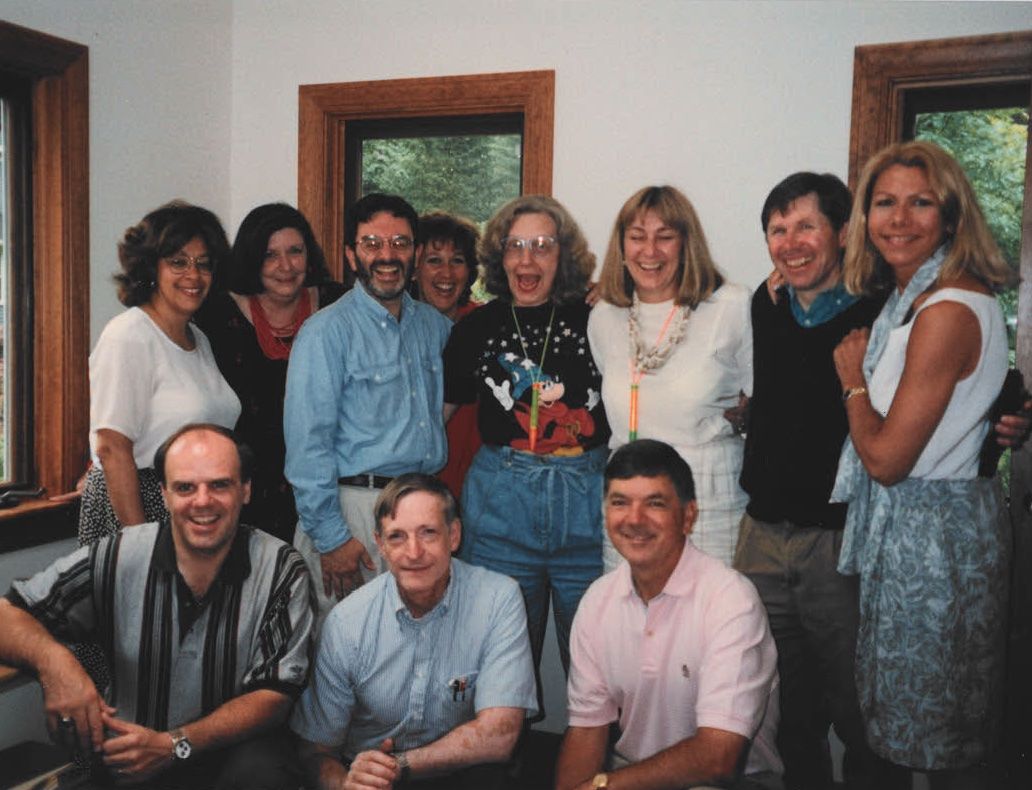
Group of RBT Consultants circa 1995
Focus on Systemic Impact
From the beginning, we have consistently tackled one huge project each decade while balancing dozens of smaller projects in other schools and districts around the country. In the 80’s we trained all the administrators in Fairfax County, VA on observation and writing skills in service of eliminating what they termed the “dance of the lemons” from school to school. Subsequently we certified and supported eight In-District trainers to carry forward work on our courses with newly hired leaders.
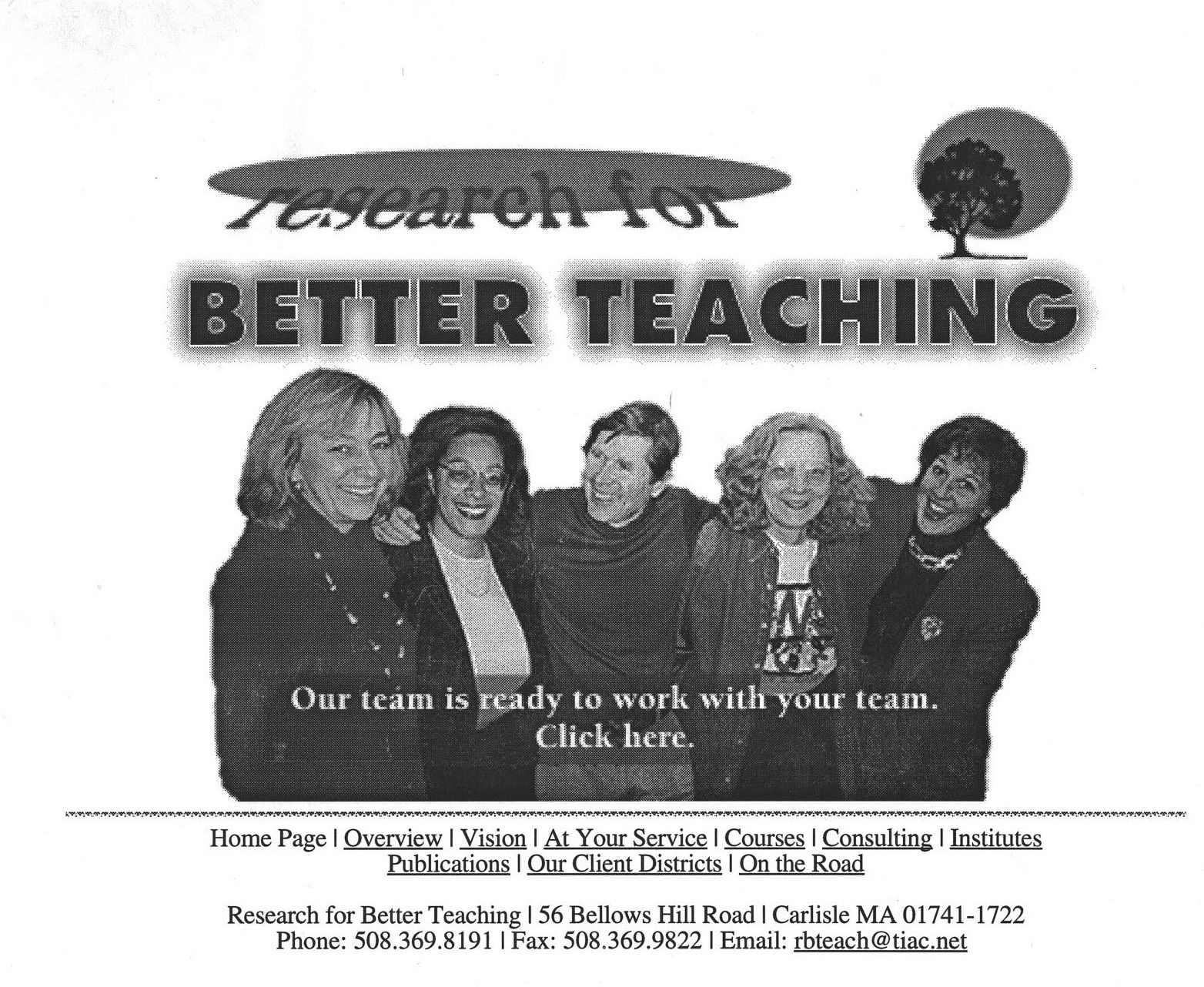
RBT's first website circa 1995
In the late 90s, we started work to do the same for Montgomery County, MD. There we facilitated a Steering Committee of district and union leaders for three years to create a new Professional Growth System for teachers, and several years later a similar system for administrators. Our presence in the county continues to this day through the Center for Skillful Teaching.
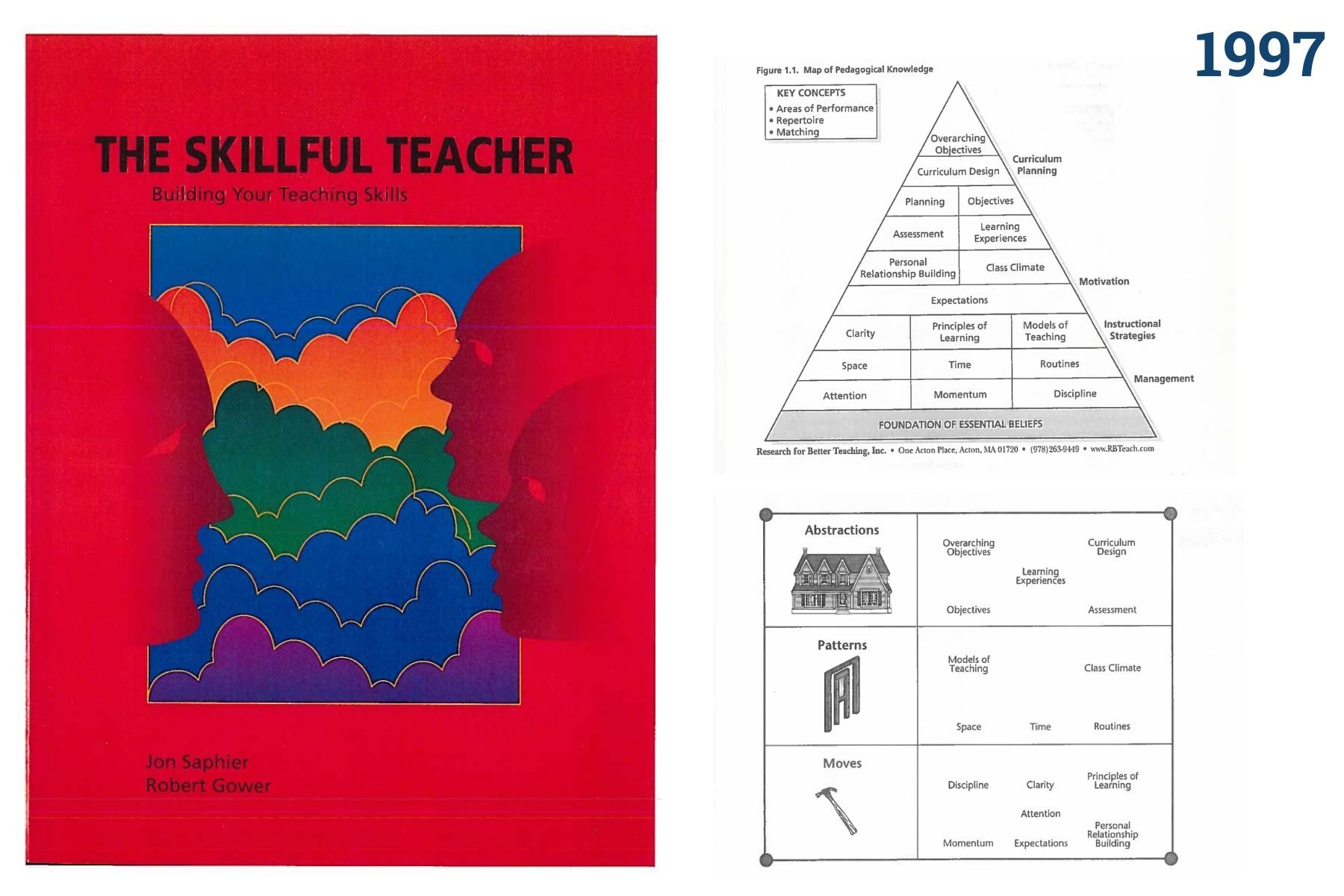
The Skillful Teacher - 1997
International Reach
In the early 2000s, we were contracted by the Department of Defense Dependent Schools (DoDDS) to train all their administrators worldwide in Observing and Analyzing Teaching and a parallel course for teachers, Understanding Teaching. Over five years we trained and certified 35 DoDDS personnel to take over our courses and continue teaching them after our work was complete.
In the late 2000s, we were contracted by the country of Singapore to design and deliver a course for all newly hired teachers in the first year of their employment and partner with the New Teacher Center for mentoring prior to the Ministry of Education taking over this training.
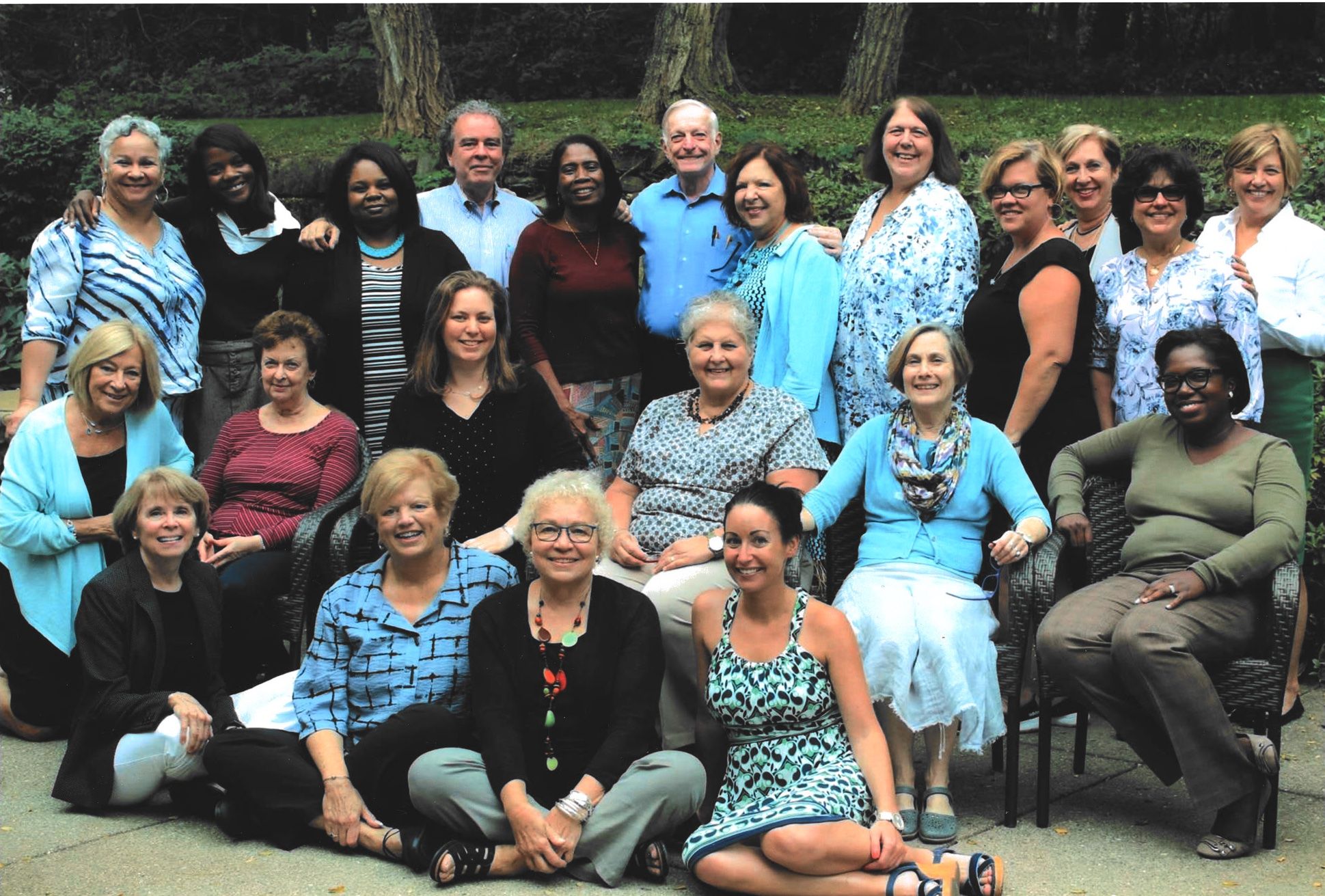
RBT Consultants and Staff 2017
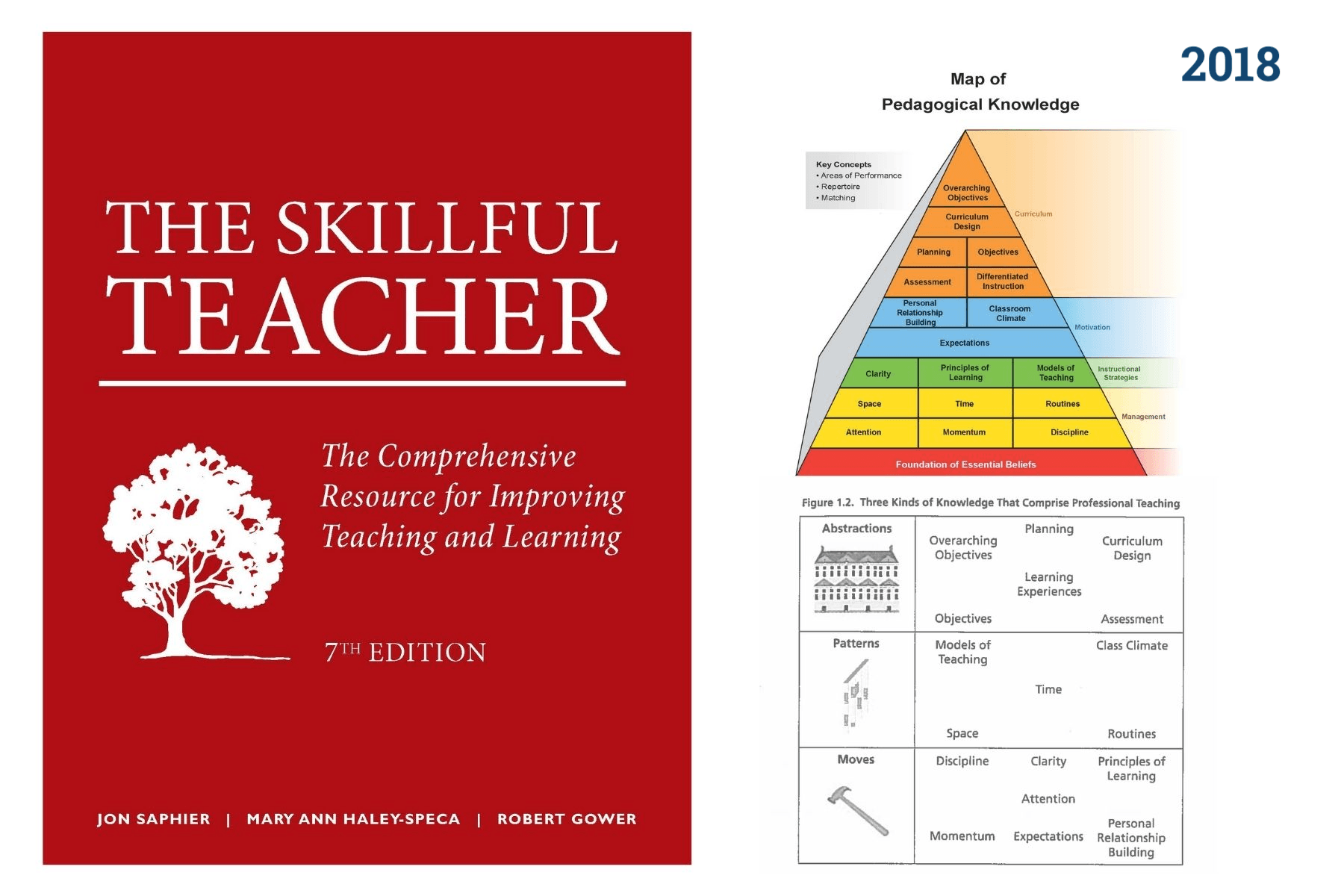
The Skillful Teacher - 2018
In 2021, The Department of Education for the state of Delaware contracted with us to train and certify all administrators in the state on Analyzing Teaching for Student Results, a course on observation and feedback skills. We further partnered on developing the capacity of principal supervisors. This multi-year contract includes training for teachers in Studying Skillful Teaching starting in winter 2021 and training and certification of DOE personnel to take over our courses beginning in 2023.
The Evolution of RBT Expertise
Each project has added to our collective learning about school improvement. The chart above traces the timeline of our learning. In the last decade, our focus has been on sustainable improvement of classroom teaching and learning.
We have learned a great deal about systemic thinking, about how to grow leadership that makes a difference, and about mobilizing the skill and will it takes to make large scale improvement. Despite the setbacks of the Covid period, we remain determined to support educators whose commitment to improve children’s life chances remains undimmed.
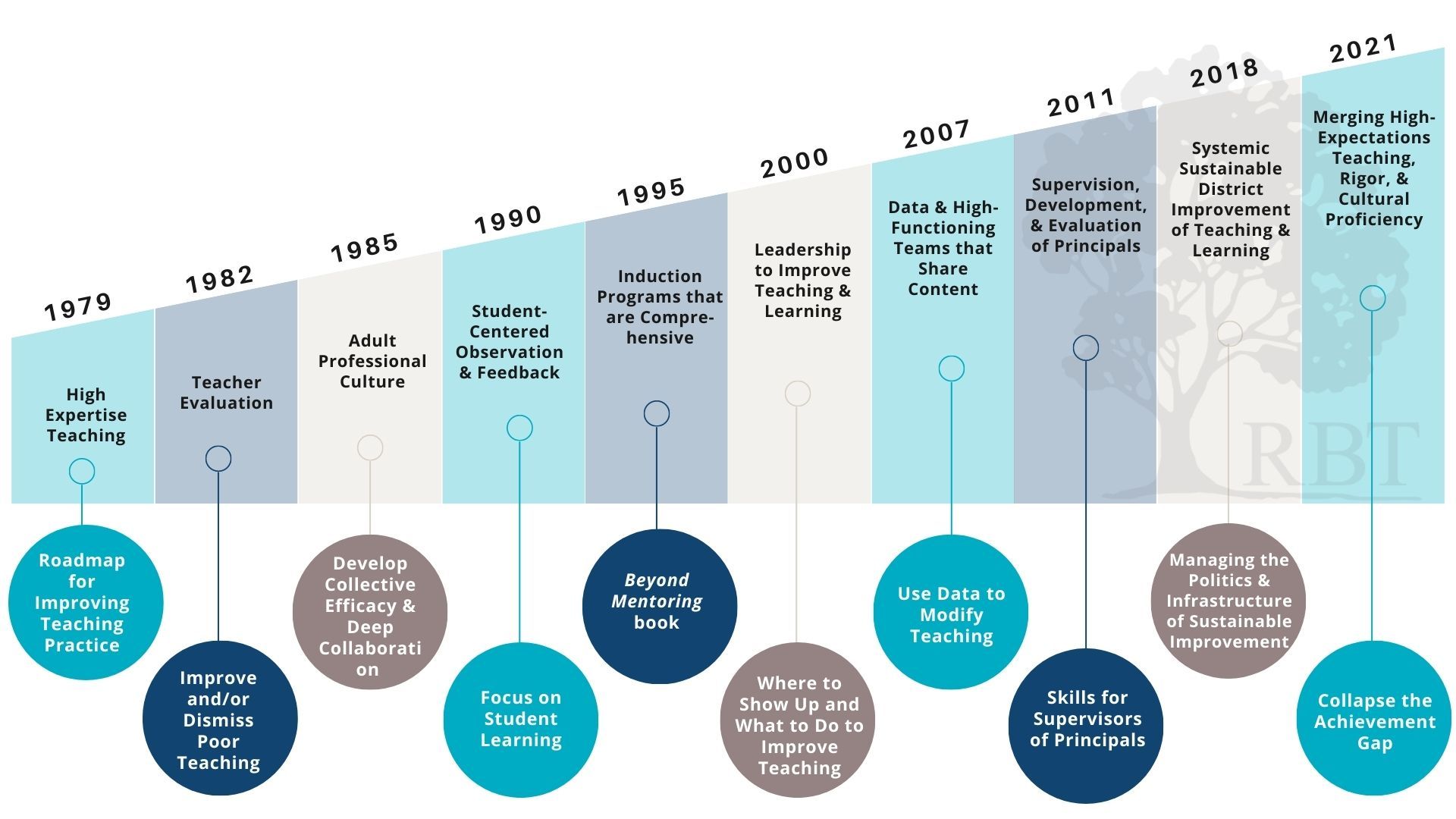
Where RBT has expertise and when we learned it

Learn More about RBT's Expertise
Over 40 years of knowledge has allowed us to hone our ability to meet your needs in a variety of ways.